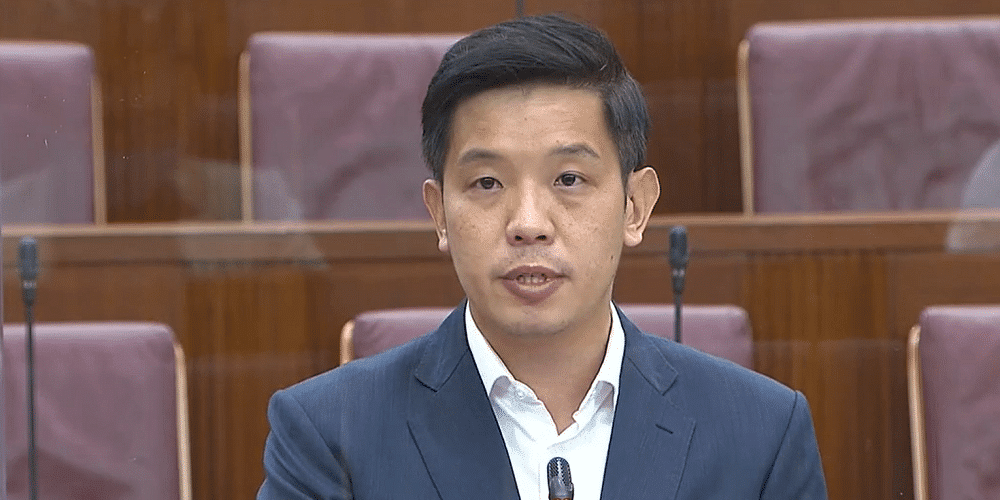The Minister for Manpower Lim Swee Say said employers who terminate employment contracts on the ground of poor performance have to be able to substantiate their claim of poor performance.
Non-Constituency Member of Parliament Assoc Prof Daniel Goh Pei Siong questioned the Minister on the issue of employee terminations.
He has asked:
- What constitutes due and fair process in terminating employees due to poor performance;
- What recourse do employees have to access crucial evidence on performance held by employers to prove unfair dismissal;
- What are the penalties for employers who disguise retrenchment as termination due to poor performance.
On the same issue, Member of Parliament Dr Tan Wu Meng (Jurong GRC) also asked the Minister for Manpower for an update on investigations into the recent termination of multiple employees of Surbana Jurong.
In January a group of 54 Singaporean workers were laid off by Surbana Jurong. They were given two letters to choose from after meeting their Human Resource department on 6 January, and they had to choose between a letter of termination and a letter of resignation.
Surbana Jurong, the Temasek Holdings-owned infrastructure consultancy, acknowledged on 24 Jan that ‘the process could have been better managed’. It has said that it was working closely with the union bodies to provide an ‘equitable and mutually agreeable arrangement’ for the affected workers and to help them find new employment.
The Minister said that The Tripartite Guidelines on Fair Employment Practices is clear that employers who wish to terminate the services of employees on the ground of poor performance are to apply relevant and objective performance criteria and it should be made known to all employees.
“Employers should also keep records of their employee’s performance, and a decision to terminate the service of an employee should be based on documented poor performance,” Mr Lim said, “Where it involves a unionised employee, the union should also be consulted.”
If the employee files an appeal of unfair dismissal to MOM, it will first mediate. Should mediation fail, it will conduct an inquiry and require the employer to show cause and produce evidence to justify the termination. “This is provided under the Employment Act, as well as the Industrial Relations Act for union members,” Mr Lim explained.
If an employer is unable to substantiate his claim that the employee’s performance is poor, the employer may be ordered to reinstate the employee, or to provide compensation. If the employer does not comply with the order, he could be prosecuted, the Minister said.
Speaking on the case of Subarna Jurong, Mr Lim answered that the company has acknowledged that the process could have been better managed. “The management and unions have since reached an agreement on an ex-gratia payment, which in our view is a fair outcome for the affected employees,” Mr Lim said.
Mr Lim said, “This episode serves as a good reminder to employers that termination exercises should be conducted in a responsible and sensitive manner,”, however, there is no mention of any penalty that the company is to be subjected to, given that the company has committed multiple counts of offences stated by the Ministry of Manpower.
Er Dr Lee Bee Wah (Nee Soon GRC) stood up and asked a follow-up question on the issue; she said that for the Surbana Jurong’s 54 laid off workers who are labeled with ‘poor performance’ it will be very difficult for them to find new jobs. Er Dr Lee then asked if the government will help them to get new jobs if they need it.
The Minister answered that in his years with labor movement and MOM, this is the first time he comes across such a case where the employer conducted a termination exercise with publicly labeling the workers with ‘poor performance’.
He said, “I think this is something that certainly I as a Manpower Minister do not find acceptable. ”
Performance is a joint responsibility of employers and employees, Mr Lim said.
If the working relationship reached a certain stage that it can no longer carried out, the employer should find a way to go separately, but, he said, “You don’t label the person with poor performance.”
The Minister asked that in performance management, the employers should do it responsibly and sensitively. He said that he hope there will be no other case where the employee is labeled as a poor performer, however, he didn’t answer if the government will help the already laid off employees of Surbana Jurong.
TOC understands that the unions have approached the affected workers on behalf of the company after the incident went public, to offer the ex-gratia payment and to sign on a document to not speak to any press or public about what they have gone through.







